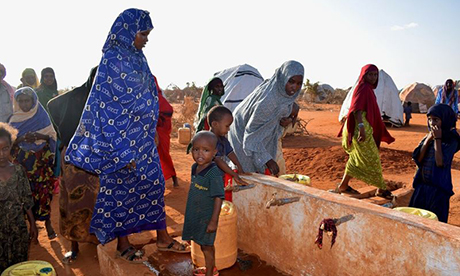The fight against global hunger faces a daunting setback as the latest State of Food Security and Nutrition in the World report reveals that the world is veering off course from achieving the Sustainable Development Goal of ending hunger by 2030.
Although hunger levels have ceased rising at the alarming rate witnessed in 2022, the numbers remain high, with 122 million more people experiencing hunger compared to pre-COVID 19 pandemic levels in 2019.
Food crises continue to grip numerous regions worldwide, with Africa being particularly hard-hit, where several countries are now at risk of famine.
As of 2022, 735 million people—equivalent to over 9 percent of the global population—struggled with chronic undernourishment, and nearly 3 in 10 people worldwide faced moderate to severe food insecurity.
The burden of food insecurity disproportionately affects women in every region, especially those living in rural areas, compounding the crisis’s gender disparities.
Alarming predictions from the Food and Agriculture Organisation (FAO) indicate that approximately 600 million people will still face chronic undernourishment in 2030, significantly deviating from the zero-hunger goal set for the same year.
Africa suffering, Asia improving
Progress in combating food insecurity has been uneven across different regions, with Africa continuing to suffer the most.
Approximately one in five people on the continent face hunger, more than double the global average.
Alarmingly, this marks the tenth consecutive year that hunger levels have increased in Africa.
In contrast, progress in Asia has been more promising, with the number of undernourished people projected to decline from 402 million to 242 million by 2030.
Events such as the war in Ukraine and the global pandemic have negatively impacted efforts to address global hunger.
The devastating impact of the COVID-19 pandemic, especially for vulnerable communities, cannot be overlooked.
The global economic recession triggered by the pandemic reversed three decades of progress in poverty reduction, leading to an additional 122 million people suffering from hunger in 2022 compared to 2019 levels.
The war in Ukraine, which erupted in February 2022 and involved two major agricultural commodity producers in the world, has further exacerbated the food crisis.
The war’s disruption in the supply chain has contributed to rising food insecurity in Africa, where many countries rely heavily on imports from Ukraine and Russia.
Despite the challenges, aid agencies and governments continue to combat the hunger crisis to get back on track toward achieving the goal of a hunger-free world by 2030.
